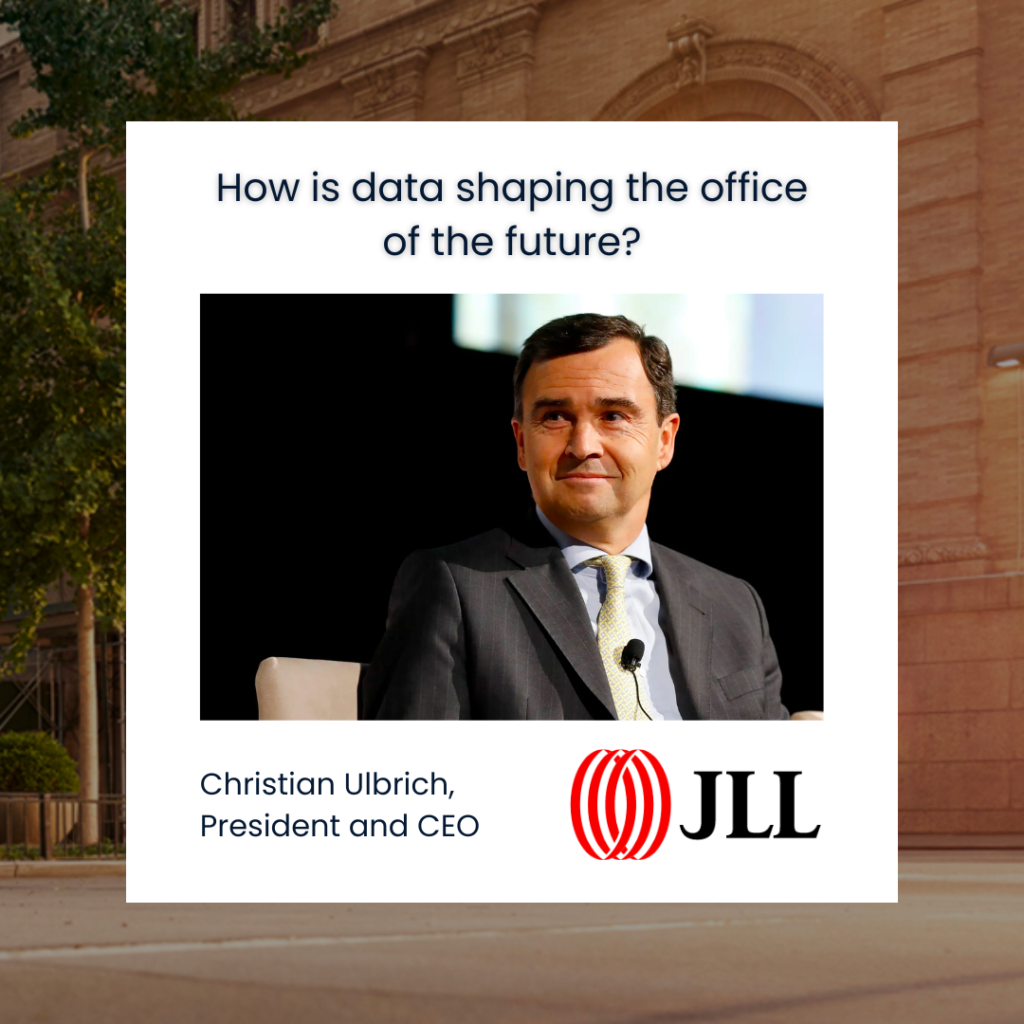Real estate, once considered as a tech-phobic industry, is going through a tech revolution.
Last year was the biggest year yet for VC funding of real estate technology or proptech, and while WeWork’s failed IPO attempt has led to some skepticism, it has also brought more eyeballs than ever before.
As in other verticals, data is driving a lot of the changes. Where operators, developers, and consultants once manually gathered and interpreted data, incumbents and startups are now looking at new ways to collect and analyze data with the hope of creating new insights about how space is bought, leased, and used.
Christian Ulbrich, president and CEO of JLL, the second-largest commercial real estate brokerage and service provider in the world, spoke with Business Insider this week at Davos. He explained why “data is absolutely critical” for the firm, and how the insights they’ve drawn from data have helped their clients save money and achieve their real estate goals.
JLL’s created its own venture fund in 2017, JLL Spark, led by Silicon Valley veterans Mihir Shah and Yishai Lerner. The fund has looked at over 1,500 potential investments, investing in more than 20 according to Ulbrich.
Last year, Shah and Lerner were promoted to JLL’s global executive board, bringing all tech at JLL under their control. Ulbrich said that JLL made this decision because the firm needs to look at tech “holistically.”
“You have to integrate it seamlessly to get to the best outcome for your clients,” he said.
Whether JLL has invested in, or is partnering with, a tech company or has developed its own technology in house, its goal is to bring technology to its clients as soon as possible.
“If we believe that this is cutting edge but we can’t immediately find a client who wants to use it because they may think it is too far out, we immediately implement it in one of our offices,” Ulbrich said.
Ulbrich said that he originally feared that tech would try to replace the incumbents in real estate, but that actual successful innovation has solved “very specific problems.” JLL is then able to use its own credibility to bring these technical solutions to their clients, increasing the speed of adoption.
Ulbrich highlighted space utilization technology as one of the highest-impact verticals for the company. He spoke about a camera technology that tracks employee movement while blurring their faces, anonymizing the data.
JLL can use this data to drastically shrink its clients’ real-estate footprints, lowering costs and environmental impact. One of the biggest ways to make an impact is by moving from assigned desks to unassigned desks, a change that Ulbrich said can probably save 20% of a client’s space.
Ulbrich highlighted one client office which has taken this to the extreme, bringing the office down to 0.65 desks for every person in the office.
“You come into the office and you have an app and the app will tell you where your colleagues are located today … and then it will show you a desk nearby,” Ulbrich said.
They’re able to get by with so few desks because of traveling or absent employees and because some people would prefer to work away from their desk, instead working in their cafeteria or in other common, “collaborative” spaces.
While some clients are shrinking their footprints to save money, others are trying to create more enjoyable places to work. With a tight labor market, perks like a gym or more collaborative, informal space can both attract and retain employees and increase their productivity.
Ulbrich said that data, and the learnings it can create, are top of the list for all of their clients. For some industries, it’s a “given”
“If you can’t deliver me precise data, then you are the wrong company,” Ulbrich said, explaining the expectations that some clients have.
Others, like the automotive industry, may not be as focused on this data at first, but once they see the results, Ulbrich said that they think the data is “brilliant.”

